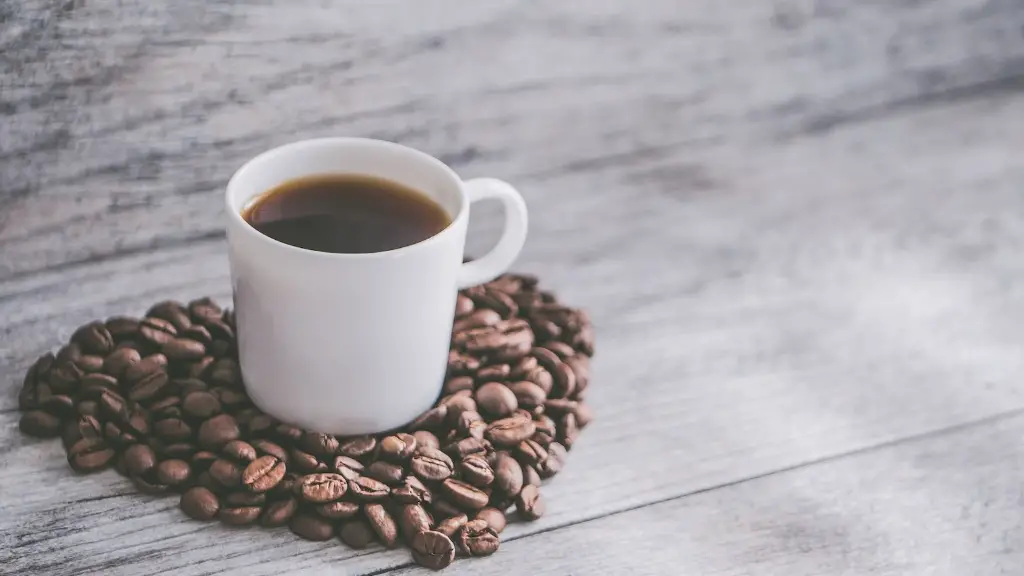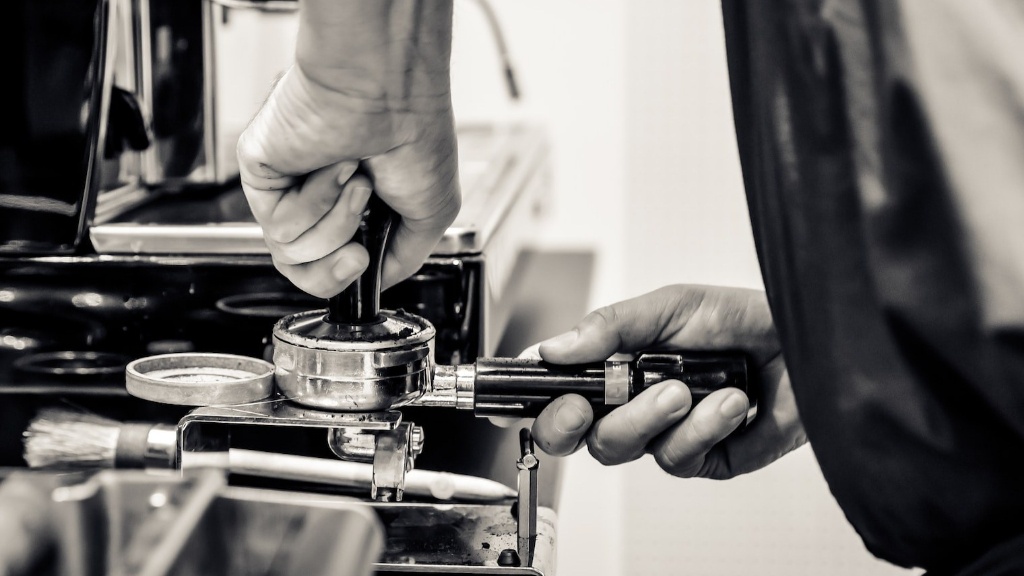Can you drink coffee and energy drinks?
Are you a caffeine addict? As a regular coffee drinker, you might be tempted to reach for an energy drink for a real boost. But, can you drink coffee and energy drinks together? Or is it a bad idea?
The Caffeine Content of Coffee and Energy Drinks
Coffee and energy drinks are two of the most widely consumed caffeine products on the market. The average cup of coffee contains 95 milligrams (mg) of caffeine but the amount can vary due to different brewing methods, bean type and roast level. Whereas, most energy drinks contain around 80 mg of caffeine, but the exact amount can depend on the individual brand.
What the Experts Say
Researchers have not looked specifically at the combined effects of coffee and energy drinks, but many experts advise caution when consuming them together.
Registered dietician and nutritionist, Amanda Calucci, suggests that you be cautious when it comes to mixing the two caffeine sources. She adds that because caffeine is a stimulant, any sudden increase in your body’s caffeine intake can leave you feeling jittery, anxious, even nauseous.
According to a Neurology Advisor survey of US adults, energy drinks are consumed on a regular basis by 26% of respondents. Of those, 60% reported drinking them in combination with coffee otherwise known as ‘caff-punk’ (caffeine + punk).
Risks and Benefits of Mixing Coffee and Energy Drinks
By drinking both coffee and energy drinks, you might be more able to maintain your alertness throughout the day. But continually taking in more caffeine can backfire and leave you feeling more tired and less mentally focused.
Studies have also shown that drinking too much caffeine can increase your heart rate, raise your blood pressure, lead to dehydration and might affect your quality of sleep.
Alternatives for Staying Energized
If you’re a regular coffee drinker in need of an energy boost, there are ways to get the natural energy you need by avoiding the combination of coffee and energy drinks.
Drinking more water and eating real food, rather than snacking on energy bars, can be a great way to get energy sustainably. Eating protein, healthy fats and a moderate amount of carbohydrates helps you stay alert and mentally sharp. Even simple natural energy boosters such as going for a walk or taking a nap can work wonders.
How Much Caffeine is too Much?
Most experts advise that you consume no more than 400 milligrams of caffeine per day, so sticking to this limit is essential for your health.
It can be hard to keep track of how much caffeine you’ve ingested, so it may help to monitor your caffeine intake by making a personal log. Alternatively, you can monitor your personal tolerance for caffeine. If you find yourself becoming jittery and anxious, it may be time to switch to decaf.
What will Happen if You Quit Caffeine Suddenly?
Giving up caffeine can be hard but it’s important to know the side-effects before quitting cold turkey. Abruptly stopping caffeine intake can lead to withdrawal symptoms such as fatigue, headaches and difficulty concentrating.
The best way to slowly reduce caffeine intake is to gradually reduce the number of coffees or energy drinks that you consume every day and replace them with a substitute such as green tea.
Are Energy Drinks a Healthy Alternative?
Many energy drinks contain a long list of ingredients, including different vitamins and amino acids, which may make them seem like a healthier option than coffee. But keep in mind that the caffeine content of energy drinks is still higher than coffee, meaning that it’s still possible to have too much. That said, some energy drinks are reformulated with reduced caffeine levels, and so these may be a better choice for those who want to stay within the recommended daily caffeine limit.
Can You Receive Health Benefits from Caffeine?
Caffeine can have some health benefits such as improving alertness, concentration and performance in physical tasks. By drinking moderate amounts of caffeine throughout the day, you may notice an improvement in your focus.
However, if you’re mixing coffee and energy drinks, it’s important to remember that too much caffeine can also lead to negative side-effects. Keep a log of what you eat and drink to make sure that you’re staying within the recommended 400 mg caffeine limit per day.
Can Coffee and Energy Drinks be Mixed?
The combination of caffeine from coffee and energy drinks can certainly be tempting, but it’s important to be aware of the risks of drinking too much. It may be better to spread out your caffeine intake throughout the day with smaller doses of coffee or energy drinks, and supplementing with natural energy-boosting methods like exercising and eating protein-rich meals.
If you decide to mix coffee and energy drinks, be sure to monitor your caffeine intake and overall health to ensure that you’re not overdoing it.
Can Mixing Coffee and Energy Drinks Give more Caffeine Highs than Coffee Alone?
While studies show that caffeine consumption boosts alertness and focus in the short term, there isn’t much difference between the high from drinking coffee alone and the high from a combination of energy drinks and coffee. That said, the amount of caffeine intake can still be higher when consuming both in combination. Generally, the higher the dose of caffeine, the greater the physical and psychological effects.
Common Side-Effects When Consuming Energy Drinks and Coffee
Overconsuming caffeine can lead to a range of negative side-effects, from headaches and nausea to chest pains and irregular heartbeats. It’s also possible to experience depression and anxiety, particularly when higher doses of caffeine are consumed regularly.
If you find yourself feeling jittery, tired or having trouble sleeping, it’s important to take a break from drinking coffee or energy drinks. Taking a break from caffeine can leave you feeling more alert and focused in the long-term.
What Does the Research Say?
Studies investigating the risks of mixing coffee and energy drinks are few and far between. However, the available evidence suggests that combining the two can result in greater physiological effects than either drink on its own.
A 2020 study published in the Journal of the American Heart Association compared the effects of consuming a caffeinated energy drink to those of consuming a caffeinated beverage alone. Results of the study showed that the combination had a greater effect on participants’ heart rate, blood pressure and alertness.
Can Coffee and Energy Drinks Have a Negative Effect on Mental Health?
Caffeine consumption has been linked to increased alertness and reduced fatigue but, like any stimulant, too much can have a negative impact. In the long-term, too much caffeine can affect your sleep, leading to daytime fatigue and, in some cases, even depression.
It is recommended that you don’t consume more than two coffees or two energy drinks a day and avoid taking them at least nine hours before bedtime. Ensuring that you’re getting enough rest can help improve your mental health and focus.
Conclusion
Overall, caffeine has been linked to a range of positive benefits but can become harmful if consumed in excessive amounts. Limiting coffee and energy drinks to one or two a day is a great way to get the energy you need while avoiding the risk of overdoing it.
Monitoring your intake is key, and it might help to log how much coffee and energy drinks you’re consuming and be aware of any side effects. As with any stimulant, moderation and awareness are key, so as long as you’re mindful of your caffeine intake and take regular breaks, you’ll be able to get all the benefits without the harmful effects.



